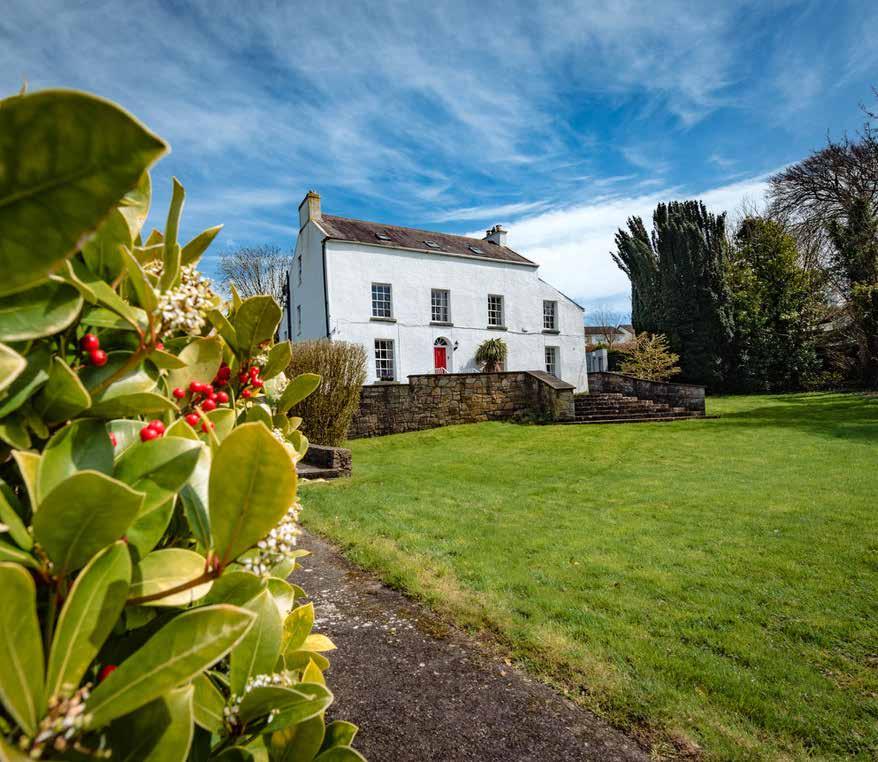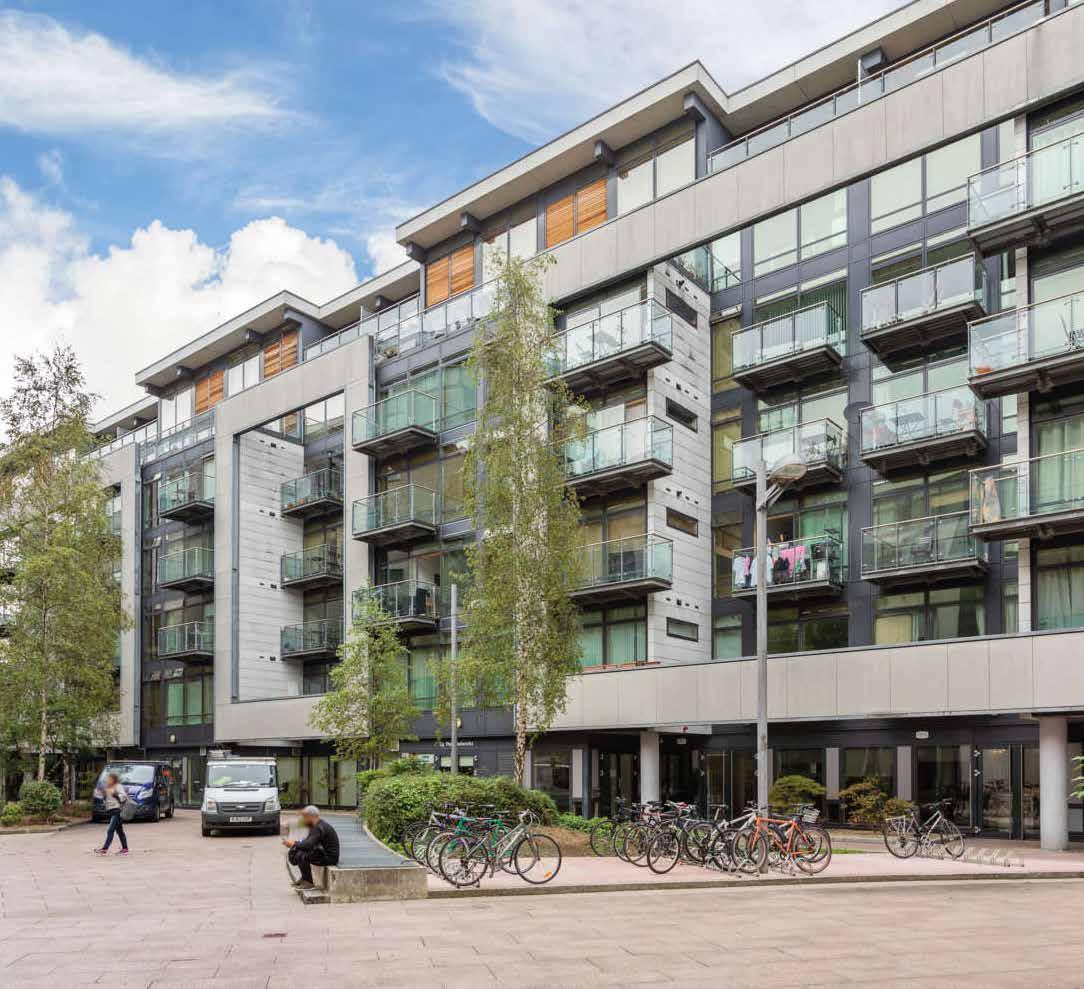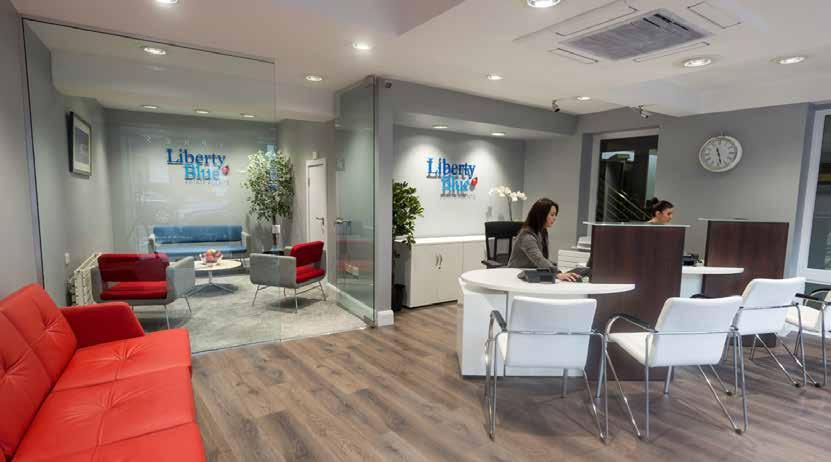
6 minute read
First Time Buyers Guide
Buying your first property is a huge step for everyone who take it. As Waterford’s leading independent sales and letting experts, we have put together some useful information to help you through it.
Figure out your Budget If, like the vast majority of us, you need to get a mortgage to buy your house, it is a good idea to work out how much you will be able to afford at the outset. Banks can lend you up to 3.5 times your gross annual income (except for buy to let) plus they have the discretion to add 20% of the value of the mortgage above this limit for first time buyers. So, if you and your partner have a combined gross annual income of €60,000, the banks may lend you up to €252,000.
Advertisement
How Much Deposit Do I Need? First time buyers need to pay a deposit of min. 10%. On a property priced at €175,000, that means €17,500. Lenders have some discretion here too and may allow you to pay only 5% on deposit.
Help to Buy The Help to Buy (HTB) incentive is a scheme to help first-time buyers get a deposit for a home. It allows you to claim back tax that you have paid in Ireland the last four years. You can claim up to €30,000 or 10% of the price of your new home, whichever is lower.
Get Your Ducks In A Row We recommend speaking to a reputable independent financial advisor before setting off on your house buying journey. Your advisor will help to find the best mortgage provider for your needs and will advise you on your application. When thinking about how much to apply for, consider leaving room in your budget for additional expenses like rises in interest rates and avoid going for the absolute maximum amount. You can apply for your mortgage and get approval before you start looking for properties. This will help to focus your search on properties in your price range and will speed up the process of purchase. Compare mortgage rates carefully and make sure you go with the most competitive. Remember that the shorter the duration of the mortgage, the less you will be paying in interest over the years. It is a good idea at the stage to shop around for a solicitor. Recommendations from friends or family who have purchased or sold property are very valuable in this. Request quotes and look into the reputations of solicitors in your area. Having your solicitor on board from the start will help to move the process along more quickly – as soon as your offer on a property is accepted, you will be asked for your solicitor’s details. Your solicitor will check that the property seller has a legal right to sell it and will help with the transfer of ownership to you. Fees vary and extras are often charged for, like phone calls – make sure you get all of the possible costs clarified in advance.
Looking for a Property Make a list of your must haves. It is important to have these to hand when looking at properties online or in person to focus your mind (house hunting can be very adrenaline fuelled and we could all end up buying something that doesn’t exactly suit if we’re not careful!) Are you happy with a terraced house, semi-detached or detached? Do you need a secure outside space? How many bedrooms and bathrooms do you need? Research the areas you would like to live in, paying attention to features that are important to you like schools, health facilities, sports grounds, transport links, shops. How much time are you willing to spend commuting to work? Try to talk to some people who live in the areas you’re considering, to get a good idea of what the neighbourhood is like. Most properties are advertised online. The main websites to find properties to buy in Ireland are daft. ie and myhome.ie
Viewing Properties When you find a property you’re interested in, arrange a viewing with the Estate Agent. Let the Estate Agent know what kind of property you want and they may be able to recommend others on their books and send you the details.
Bring your checklist with you to viewings – make notes and take photos. Ask as many questions as you can while you are there. Remember that you can re-paint, re-carpet and refurbish a home but it will be more difficult to deal with issues like size or location. Check the Building Energy Rating of every property you view. Energy efficiency can make a big financial difference over the years.
Making An Offer When you’ve found the property that best suits your needs and your budget, it’s time to make your offer to the estate agent. Check the property price register before you do so, so that you can get an idea of what properties in the area have sold for recently. At this stage, it can really help to have your documentation from your bank to show that you have been approved for a mortgage – sometimes the sellers will take a lower offer if it seems that the sale will go through more quickly.
Sale Agreed This means that your offer has been accepted by the sellers and you have paid your booking deposit. The deposit may be a percentage of the house price or a fixed amount. If you change your mind before signing the contract, you should be able to get this deposit refunded. The estate agent now sends a document of sale to your and the seller’s solicitors with all the necessary information such as price, what is included in the sale, closing date and the contact details of all involved. The seller’s solicitor then send the contracts for the sale with the Title Deeds, which show the details of ownership of the property, to your solicitor.
Survey It is recommended that you appoint your own surveyor to carry out a detailed structural survey of the property before completion – this will show any work that needs to be done that might affect the price you offered or even your decision to buy! Your mortgage provider may insist on an independent valuation of the property before it will confirm the mortgage to buy it.
Home Insurance Once the property is sale agreed, it is a good idea to look for home insurance, as it will be required by the bank before the mortgage funds are issued to you.
Mortgage approval Your mortgage provider will send you a formal letter of offer including all relevant information on the mortgage : Value, Duration and Cost of loan Details of property being purchased Deadline for accepting the offer of the mortgage If you are satisfied with all the details, you need to accept the offer via your solicitor.
Exchange of Contracts Once your solicitor has checked the contracts for sale and you are happy with them, you need to sign two copies of them. Your solicitor then returns both to the seller’s solicitor. Now you are legally bound to buy the property.
Paying your Mortgage Deposit Your deposit is now paid to the seller via your solicitor – the amount will have been specified by your mortgage provider and your booking deposit will be deducted from it.
Closing The seller’s solicitor sends one copy of the signed contract back to your solicitor when the deposit is paid. Now the seller is legally obliged to sell you their property. Both solicitors arrange for a final closing date and time, following the payment of the property price to the seller by your mortgage provider, when will be given the keys to your new property!
Valuation “As newcomers to Waterford, we found Regina extremely helpful with any queries we had about properties and the local area. She was very accommodating and efficient when arranging a viewing.” Kevin & Hannah O’Sullivan, Waterford









